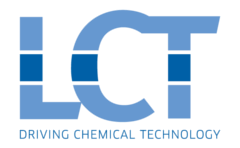|
03-01-2023 |
ACS-CSES Webinar Prof. Mark Saeys |
|
23-09-2022 |
eFFECT4 : “Roadmap to Carbon Neutrality for Industry and Society” |
|
19-08-2022 |
Chemical Technology Symposium on 9 September 2022 |
|
17-06-2022 |
PSYCHE project in themabijlage 'Duurzame Chemie' (De Morgen) |
|
31-05-2022 |
Recreation of the iconic 1927 Solvay picture |
|
31-05-2022 |
Florence Vermeire winner of JDE 2022 award |
|
19-04-2022 |
C123 video |
|
16-01-2022 |
Highly cited Web of Science contributions from LCT research themes |
|
10-12-2021 |
Register now for the first Chemical Technology Symposium |
|
03-12-2021 |
LCT in Virtual Moonshot Advisory Board Update |
